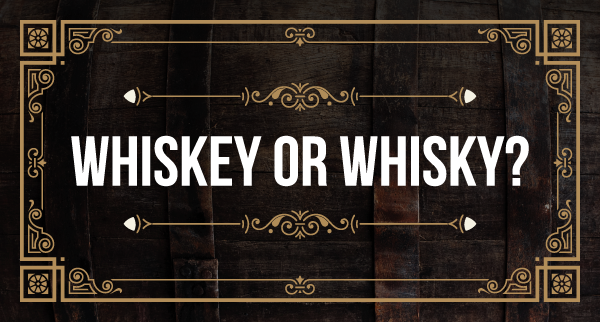Whiskey or Whisky?
Whiskey or whisky? Bourbon is only from Kentucky, or is it? What on earth is a mashbill and why do you care? These are only a few of the common questions I hear when hosting tastings and events. Knowing more about the common phrases, terms, and misconceptions can bring a greater level of understanding and enjoyment to the time you spend sipping your favorite whisk(e)y.
Let's talk whiskey and clear some things up.
The first - do you spell it whiskey or whisky? The answer is both. Generally speaking, in Great Britain, Canada and Japan it's "whisky." In the United States and Ireland, it's "whiskey." There are a few American brands that prefer to use "whisky." Adding to the confusion the U.S. Code of Federal Regulations uses "whisky" to define the spirit. Bottom line - it does not make a difference which way you spell it.
Wondering what a mashbill is when you hear distillers talking? Basically it is part of their recipe - the mashbill is the ratios of different grains that go into making a particular whiskey. For example, bourbon must use at least 51% corn in its mashbill. And speaking of bourbon, contrary to popular belief it does not have to be made in Kentucky to be bourbon. A distiller can produce bourbon in any state, as long as it is at least 51% corn and aged in new, charred oak barrels. The barrels do not have to be American Oak or aged a specific amount of time.
What does it mean when a label says "straight whiskey?" Straight whiskey refers to American whiskey that has been distilled by a single distillery and aged in oak barrels for not less than two years.
The next time you settle in with your favorite whiskey or try and new one and ponder what goes into it or what the “angel’s share” is, drop me a note. I plan to address more whiskey facts and terms in future articles.

